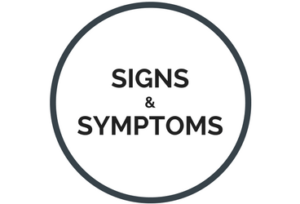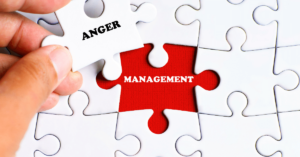Anger is a natural emotion that everyone experiences. It’s not something you should feel ashamed about, but rather it is something that you should learn how to deal with in the best way possible. In this article, we will go over some quick tips to deal with angry person and resolve any issues that may arise as a result of your anger. These are all tried-and-true tricks that can be applied to any situation so keep reading!
Contents
Who Is An Angry Person?
An angry person is someone who has a lot of built-up anger and resentment that they have not dealt with. This can be due to several factors, such as traumatic experiences or unresolved anger from childhood. An angry person may have a short temper and be quick to lash out at others. They may also seem tense and irritated all the time, even when there is no clear reason for them to be angry.
If you feel like you constantly have to deal with an angry person, it’s important to learn how to deal with their anger in the best way possible. Not only will you get to have a problem solved, but it will also help the people around you.
Signs That You Have Anger Issues

There are a few key signs that you may have anger issues. Do any of the following sound familiar to you?
- Get angry very easily and it’s difficult for you to calm down
- Tend to bottle up your anger and it often ends up exploding in destructive ways
- Have a lot of resentment towards others, especially people close to you
- Your anger causes problems in your personal or professional life
If you identify with any of these signs, then you need to seek help from a professional. Anger management therapy can be incredibly helpful in resolving any underlying issues that are causing your anger. It can also teach you better coping mechanisms so that you don’t lash out at others in harmful ways.
How To Deal With Angry Person?
Anger can be a difficult emotion to deal with, but it doesn’t have to ruin your life. You mustn’t bottle up anger and let it fester over time because this is when problems tend to arise. Try the following tips for resolving angry feelings:
Tips To Deal With Anger
Accept Your Responsibility
Accept responsibility for your emotions. It’s important to not blame other people or circumstances when you feel angry because this will only make the situation worse and prevent any progress from being made.
Look At The Things Objectively
Take a step back and look at things objectively. Sometimes it’s difficult to see clearly when we’re caught up in anger, but if you take some time away from the situation that is causing you anger then it becomes much easier to find solutions that work well for everyone involved.
Look Inwardly
Look inwardly instead of outwardly as often our problems stem from unresolved issues within ourselves such as childhood trauma (e.g., sexual abuse). Anger can be used as a defense mechanism against pain so try taking steps towards resolving those underlying factors which can help improve how *you* feel.
Do The Opposite Of Your Instincts
Do the opposite of what your instinct tells you to do when dealing with an angry person (e.g., run away, fight back). The first thing that comes to mind shouldn’t be our default reaction because it could make things worse and lead to more problems in the long *run*.
Take Some Time Alone
Give yourself some time alone to cool off and let loose all that built-up anger. Bottling your anger up will only make you madder. You’ll explode at someone else if the opportunity presents itself. Sometimes we feel angry and we need to step back so that we can think about what is happening. We should take a break when we’re angry so that we don’t say something before thinking about it.
Living With An Angry Person
If you’re living with an angry person, it can be difficult to manage your emotions and reactions. When dealing with anger from someone close to us, we often become defensive which only makes the situation worse. Try these tips for resolving conflict:
Watch Your Behavior
Don’t mirror their behavior because this will make them angrier and cause more problems in the long *run*. Don’t give them a reason to lash out at you anymore than they already have. Stay calm when they are yelling at you so that they don’t do anything drastic or harmful (e.g., throwing things). Be patient even if it doesn’t seem like it’s working – resolve takes time!
Think Before You React
When we’re angry, our reactions are often knee-jerk and not thought out. This can lead to more problems down the line so it’s important that you take a step back and think about how your reaction will affect the situation at hand. Will it help or hinder?
Set Boundaries
If the person is causing problems in your personal or professional life, then set boundaries with them. Explain calmly and rationally why their behavior is making things difficult for you and what steps they need to take for things to improve. If they refuse to listen or change their ways, then it might be time to distance themselves from them altogether.
Positive Impact To Deal With An Angry Person

Improved communication
When we constructively deal with anger, it can lead to improved communication. We’re more likely to express our feelings and thoughts openly without fear of retribution. This can help build stronger relationships both personal and professional because there is less room for misunderstandings.
Better problem solving
Anger can often cloud our judgment which makes it difficult to solve problems effectively. When we deal with anger healthily, it allows us to think more clearly and come up with logical solutions that work for everyone involved.
Improved self-esteem
Positively dealing with anger can give us a sense of accomplishment and boost our self-esteem because we’ve managed to overcome something that was once challenging for us. It shows that we have strength, determination, and resilience – admirable qualities.
Resolution of conflict
When we deal with anger healthily, it can lead to the resolution of conflict because both parties are willing to listen and compromise. When communication breaks down between people, it often leads to arguments which only perpetuate the problem at hand (e.g., divorce). Anger is a powerful emotion that needs careful consideration when dealing with someone else for us not to hurt ourselves or them in the process.
Strengthened relationships
When we constructively deal with anger, it can often lead to strengthened relationships. This is because we’re more likely to be open and honest with the people around us, which builds trust. We’re also less likely to hold grudges and harbor resentment when we communicate openly and honestly.
Feeling heard and understood
One of the most common reasons people become angry is because they don’t feel heard or understood. When we take the time to understand and listen to someone else’s anger, it can often defuse the situation. This isn’t always easy but it’s worth trying because it could lead to a resolution.
When you have to deal with an angry person, try to remain calm and understanding. Don’t mirror their behavior or give them a reason to lash out at you even more than they already have. Stay patient – resolving conflict takes time! If the person is causing problems in your personal or professional life, set boundaries with them and explain calmly and rationally why their behavior is making things difficult for you. If they refuse to listen or change their ways, it might be time to distance themselves from them altogether. When we constructively deal with anger, it can lead to improved communication, better problem solving, and improved self-esteem. It can also lead to the resolution of conflict and strengthen relationships. Most importantly, to deal with angry person healthily allows us to feel heard and understood by others – something we all crave at some point or another.
Strategies To Deal With An Angry Person

- Find out the root cause of anger. If possible, do not take an angry person’s words personally. Remain objective and calm while listening to what they have to say. Avoid getting into a heated argument by taking responsibility for your actions if you are in part responsible for their emotions being triggered.
- People may get mad at you. You should stay away from them for a while or ask how to fix the problem with them. If they are angry, this will just make it worse, and they will become even angrier.
- Don’t make the situation worse by yelling back. If someone is carrying a weapon, they might get violent if you do this.
- Walk away if things get too heated, and avoid places where the potential for an altercation is high.
- Take a time-out yourself to regain your composure before attempting to talk again.
Various therapies can help deal with an angry person such as anger management therapy or cognitive behavioral therapy. If you know someone who tends to fly off the handle easily, it might be worth suggesting they seek out professional help to learn how to better manage their emotions in healthy ways. It’s not always easy to stay calm when dealing with someone else’s anger, but hopefully, these tips will give you a place to start.
Conclusion
If you find yourself dealing with an angry person, try to calm them down. Refrain from yelling back or getting into a heated argument. Listen to what they have to say and empathize without agreeing with them. When it’s time for your opinion, present it calmly and rationally rather than in the heat of the moment. This may help diffuse tension before things escalate too far out of control. Remember, anger is usually about something else; this doesn’t mean that their feelings are invalid but instead means there might be some underlying issues at play that need addressing as well (e.g., lack of sleep). Knowing how someone became angry can often help us understand why they’re upset – even if we don’t agree with their reasoning. This can help diffuse anger and prevent it from becoming a major issue.
For more information, please contact MantraCare. Relationships are an essential part of human life. It is the connection between people, and it helps us to form social bonds, understand and empathize with others. If you have any queries regarding Online Relationship Counseling experienced therapists at MantraCare can help: Book a trial therapy session




